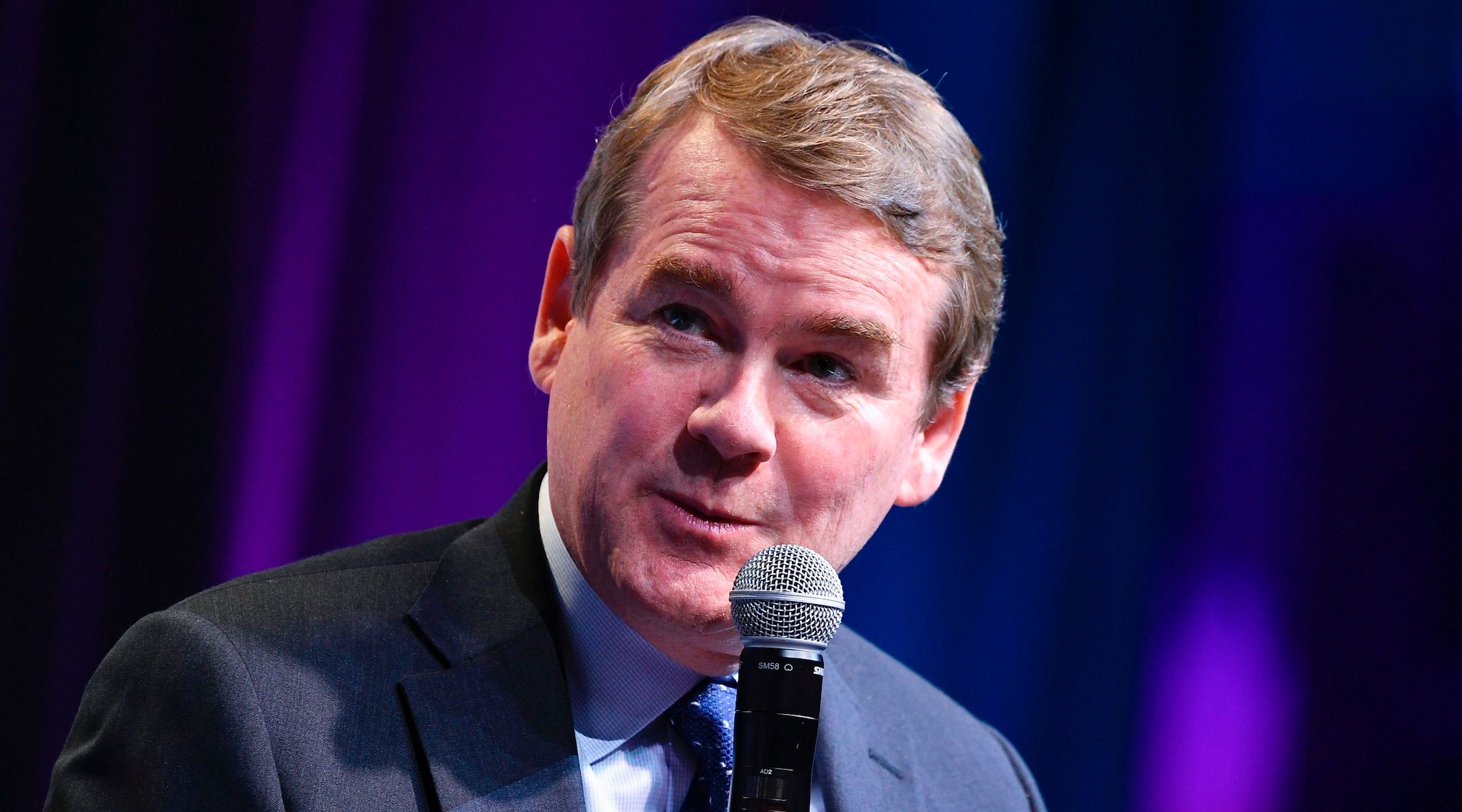(JTA) — Since announcing his presidential run in May, Michael Bennet has been polling between zero and 1 percent. He didn’t qualify for the latest Democratic debate and he’s a long shot to make the next one. The Colorado senator raised only $2.1 million in the third quarter of 2019, less than a tenth of the total brought in by Elizabeth Warren and Bernie Sanders.
But Bennet isn’t ready to give up yet, believing he’s got what it takes to beat President Donald Trump in 2020.
“I’m unconvinced that the policy agenda that is being pursued by a number of the other candidates is one that will provide an opportunity for us to win the presidency and the Senate,” he told the Jewish Telegraphic Agency in a phone interview Monday shortly after speaking at J Street’s annual conference in Washington, D.C. “And most importantly address the main concerns of the American people, which essentially is that there is almost no economic mobility in our country.”
The son of a Holocaust survivor mother, Bennet, 54, was the superintendent of Denver public schools prior to being tapped in 2009 to fill the Senate seat vacated by Ken Salazar, who became President Barack Obama’s first secretary of the interior. He went on to win re-election in 2010 and 2016.
Bennet is considered a moderate among Democratic contenders, supporting a higher minimum wage but opposing Medicare for All. In addition to his experience in business and education, he points to having won two statewide races in a swing state as reasons why he stands out in a crowded field of Democratic contenders.
“That’s going to be very important for us to consider as we think about how we don’t just galvanize the Democratic base but also re-energize and reconnect with some of the 9 million people who voted twice for Barack Obama and once for Trump,” he said.
Bennet was making his debut at the yearly conference of the liberal Middle East policy group. On Israel, he sings a different tune than more progressive candidates like Sanders, Warren and Pete Buttigieg, all of whom have said they are open to cutting some aid to Israel if it continues settlement construction or annexes the West Bank.
“I would say not where those guys landed,” he said at the J Street event when asked whether he also comes down in favor of using aid as leverage over Israel. “And in making the decision I would want to know and have a strong understanding of what the effect would be on the domestic politics in Israel.”
Speaking to JTA, Bennet further elaborated on what he viewed as central to helping Israel move toward a peace settlement with the Palestinians.
“We can set an example of what a pluralistic society, a pluralistic democracy should look like as a defender of human rights both here and around the world,” he said. “And when you’ve got a president like the one we have now, I think we’re setting a terrible example.”
At J Street, Bennet invoked his Jewish background in response to a question about how he would deal with protest movements in the Middle East. The senator’s mother, Susanne, was born into a Jewish family in Warsaw and survived the Holocaust in Poland.
She was separated from her parents, who were in the Warsaw Ghetto. The family eventually reunited and lived in Sweden and Mexico before settling in the United States in 1950.
Bennet said his mother called him when she learned of Trump’s policy of separating migrant families detained at the U.S. border with Mexico and asked him what he was doing about it.
“I see myself in those kids,” he recalled her saying.
“I would say that my family’s experience is something I think about every day,” Bennet told JTA. “And when I say experience, I mean their survival during the Holocaust, but then their finding their way to the United States.”
Bennet’s father, Douglas, was Christian and worked as an assistant secretary of state in both the Clinton and Carter administrations. He was also the CEO of National Public Radio and the president of Wesleyan University. Bennet’s brother James is a former Jerusalem bureau chief for The New York Times and currently serves as editor of the paper’s editorial page.
Bennet acknowledges his Jewish roots, but is vague about whether he identifies with any religion.
“I believe in God,” he told JTA. “And I feel very fortunate to have the chance to visit with all kinds of different denominations of people in my state and across the country.”
JTA has documented Jewish history in real-time for over a century. Keep our journalism strong by joining us in supporting independent, award-winning reporting.






